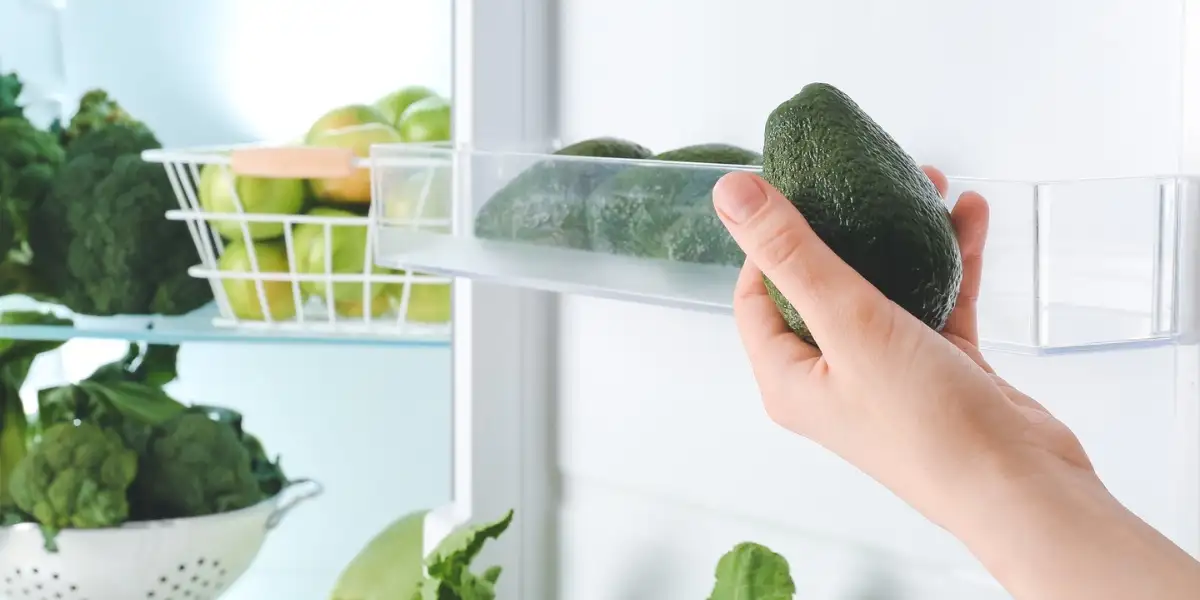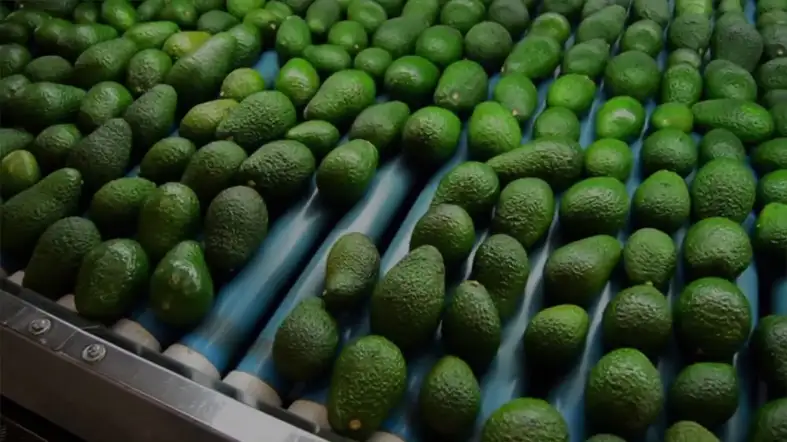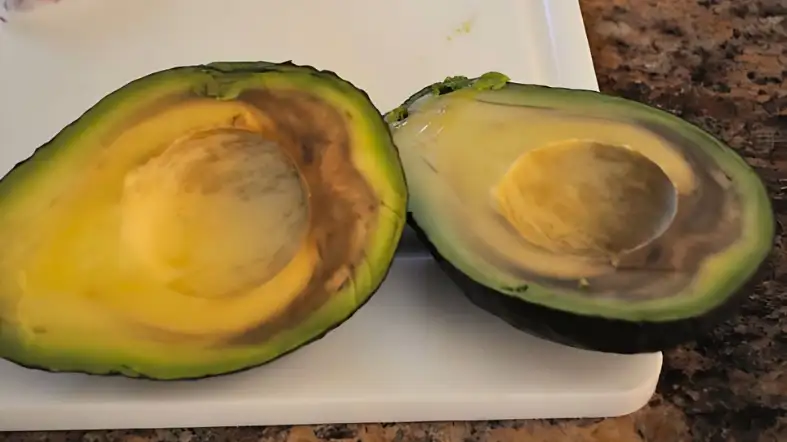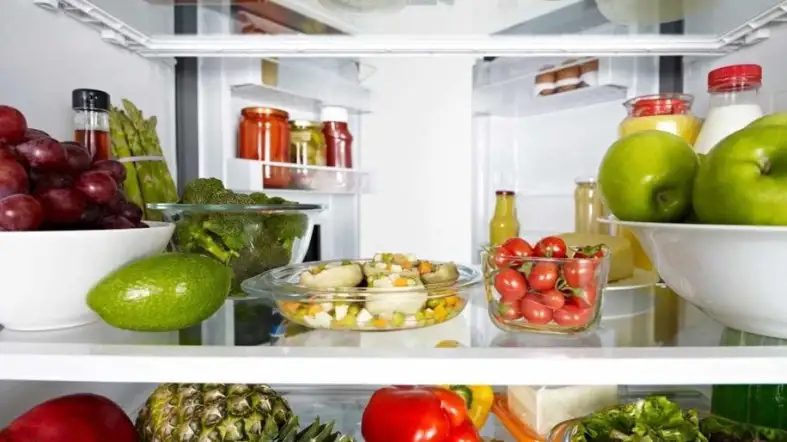Are you unsure about the best way to store avocados? One common question that often arises is whether avocados should be refrigerated or left at room temperature.
The proper storage method can significantly impact the quality and shelf life of this beloved fruit.
In this article, we will explore the debate around refrigerating avocados and provide you with valuable insights to help you make an informed decision.

Do You Put Avocados in the Refrigerator?
Yes, you can put avocados in the refrigerator. It helps to prolong their shelf life and prevent overripening.
Place them in the fridge once they are ripe enough for your desired level of ripeness.
The Shelf Life of Avocados: Refrigeration vs. Room Temperature
Avocados are delicious and versatile fruit that can be enjoyed in various dishes. However, their shelf life can be a bit tricky to navigate.
Proper storage plays a crucial role in maintaining their freshness and preventing premature spoilage.
When it comes to maximizing the shelf life of avocados, two main factors come into play: ripeness and desired consumption timeline.
Let’s explore how you can adapt your storage approach accordingly.
Refrigerating Avocados:
When avocados are at their desired level of ripeness, placing them in the refrigerator can help slow down the ripening process.
This is beneficial when you want to extend their shelf life and have more control over when you consume them.
The cold temperature of the refrigerator helps slow down enzymatic activity, which delays the ripening process and prevents avocados from becoming overripe too quickly.
Storing Avocados at Room Temperature:

If you have unripe avocados that you want to ripen quickly or plan to consume within a day or two, storing them at room temperature can be a better option.
The ambient temperature allows the avocados to ripen naturally and become ready for consumption in a shorter period.
To store avocados at room temperature, follow these steps:
1. Choose unripe avocados:
Look for firm avocados with a slight give when gently squeezed. Avoid those that are too hard or too soft.
2. Keep in a fruit bowl:
Place the unripe avocados in a fruit bowl on your kitchen counter, away from direct sunlight.
Ensure they are not stored near ethylene-producing fruits like bananas, as this can accelerate ripening.
3. Monitor ripeness:
Check the avocados daily by gently pressing the skin. Once they reach your desired level of ripeness, you can either consume them immediately or transfer them to the refrigerator to prolong their shelf life.
Benefits of Refrigerating Avocados
When you refrigerate avocados, you enjoy the remarkable benefit of preserving their freshness and texture.
By placing these vibrant fruits in your refrigerator, you create an ideal environment that slows down the ripening process.
1. Preventing Premature Ripening
Refrigeration serves as a powerful tool to prevent premature ripening of avocados.
These green gems are notorious for their rapid ripening process, often catching you off guard with their sudden transition from unripe to overripe.
However, by storing avocados in the refrigerator, you can delay this process and gain more control over their ripening timeline.
The cool temperature slows down the production of ethylene gas, a naturally occurring compound responsible for accelerating ripening.
By minimizing ethylene production, refrigeration effectively safeguards your avocados from turning overly ripe before you’re ready to indulge in their lusciousness.
2. Reducing Food Waste
Refrigerating avocados contributes to reducing food waste, which is a pressing concern in today’s world.
When left at room temperature, avocados tend to ripen quickly, giving you a narrow window to consume them.
However, refrigeration allows you to extend their shelf life significantly, giving you more time to incorporate these nutrient-rich fruits into your meals.
By preventing avocados from going bad too soon, you can avoid wasting perfectly good produce and make the most of your grocery purchases.
This not only benefits your budget but also helps to minimize the environmental impact associated with food waste.
3. Enhancing Food Safety
Another notable benefit of refrigerating avocados is the enhancement of food safety.
Avocados, like other fresh produce, can harbor harmful bacteria such as Salmonella or E. coli.
These microorganisms can potentially cause foodborne illnesses if ingested.
Refrigeration acts as a safeguard against bacterial growth, as the cool temperature slows down the multiplication of these harmful pathogens.
By keeping avocados in the refrigerator, you reduce the risk of contamination, ensuring that the fruits remain safe for consumption.
This is particularly crucial in warm climates or during hot seasons when the chances of bacterial growth are higher.
4. Maintaining Nutritional Value
Refrigerating avocados helps in maintaining their nutritional value. These fruits are packed with essential nutrients, including vitamins, minerals, and healthy fats.
However, exposure to heat and oxygen can lead to nutrient degradation.
Refrigeration slows down the enzymatic processes that cause nutrient loss, preserving the avocado’s nutritional content for a longer time.
By keeping avocados chilled, you can ensure that you are reaping the maximum nutritional benefits when you finally indulge in their
Risks of Refrigerating Avocados

When you refrigerate avocados, there are some risks:
1. Delayed Ripening Process
Refrigerating avocados can lead to a delayed ripening process, which can be a disadvantage if you need ripe avocados for immediate use.
Avocados typically ripen at room temperature, gradually softening and developing that perfect creamy consistency.
However, when you place avocados in the refrigerator, the cold environment slows down the ripening process significantly.
This means that if you have unripe avocados and want them to ripen quickly, refrigeration may hinder that natural progression, making it challenging to enjoy the ripe fruits when you need them.
2. Increased Risk of Chilling Injury
Another risk of refrigerating avocados is the potential for chilling injury. Avocados are sensitive to cold temperatures, and prolonged exposure to low temperatures can cause damage to the fruit.
Chilling injury can manifest as brown or black discoloration of the flesh, rubbery texture, and an off-flavor.
While refrigeration can help extend the shelf life of avocados, it’s important to be mindful of the duration of storage.
If avocados are kept in the refrigerator for too long or at excessively low temperatures, they become more susceptible to chilling injury, leading to a less enjoyable eating experience.
3. Accelerated Decay in Ripe Avocados
Refrigeration can accelerate the decay process in ripe avocados. Once an avocado reaches its desired level of ripeness, refrigeration can speed up the deterioration of the fruit.
The cold environment can cause the flesh to darken, develop brown spots, and become unappetizing.
Refrigeration can contribute to a faster decline in quality for ripe ones. Therefore, if you have perfectly ripe avocados that you want to enjoy at their peak, it’s best to keep them at room temperature rather than refrigerating them.
4. Loss of Nutritional Value
Refrigerating avocados can result in a loss of nutritional value. Like many fruits and vegetables, avocados contain delicate nutrients that can degrade over time, especially when exposed to temperature fluctuations.
Refrigeration can cause some loss of essential vitamins, minerals, and antioxidants found in avocados.
So, if you’re aiming to maximize the nutritional benefits of avocados, consuming them fresh and at room temperature might be a better choice.
How to Properly Store Avocados in the Refrigerator?

By following these steps to properly store avocados in the refrigerator, you can extend their shelf life:
Step 1: Selecting the Right Avocados
To properly store avocados in the refrigerator, start by selecting ripe but firm avocados.
Look for avocados that yield slightly to gentle pressure when you apply them to the skin.
Avoid avocados that feel overly soft or mushy, as they may not hold up well in the refrigerator.
It’s also essential to check for any visible signs of damage or bruising on the skin. By choosing avocados in good condition, you set the foundation for successful storage.
Step 2: Preparing the Avocados
Before refrigerating avocados, it’s important to prepare them properly. Start by gently washing the avocados under cool running water to remove any dirt or debris from the skin. Pat them dry with a clean towel.
Next, remove any stickers or labels if present. It’s essential to keep the skin intact, as it acts as a protective layer for the fruit.
By ensuring that your avocados are clean and free from any external contaminants, you promote better storage and reduce the risk of bacterial growth.
Step 3: Wrapping the Avocados
To protect avocados from exposure to air and moisture in the refrigerator, it’s advisable to wrap them in plastic wrap or aluminum foil.
Start by placing the avocado in the center of a sheet of plastic wrap or foil.
Gently fold the wrap or foil over the avocado, ensuring that it is completely covered.
This wrapping will help create a barrier and prevent the avocado from drying out or absorbing odors from other foods in the refrigerator.
By securely wrapping your avocados, you maintain their freshness and integrity during storage.
Step 4: Placing Avocados in the Refrigerator
When it comes to storing avocados in the refrigerator, proper placement is key.
Choose a designated spot in your refrigerator, preferably in the crisper drawer or a lower shelf where the temperature is most consistent.
Avoid placing avocados near areas that tend to be colder, such as the back of the refrigerator or near the vents, as this can increase the risk of chilling injury.
By selecting an appropriate location, you ensure that your avocados are stored at an optimal temperature to maintain their quality.
Step 5: Monitoring and Consumption
Once your avocados are in the refrigerator, it’s essential to monitor them regularly to ensure they are in good condition.
Check on your avocados every few days, inspecting them for any signs of ripeness or decay.
If an avocado ripens and you’re not ready to consume it yet, you can transfer it to the countertop to continue the ripening process.
Remember that refrigeration slows down the ripening process, so you may need to plan accordingly to have ripe avocados when desired.
FAQs
1. How Long Can I Store Avocados In The Refrigerator?
You can store avocados in the refrigerator for up to 5-7 days.
2. Can I Refrigerate Unripe Avocados?
Yes, refrigerating unripe avocados can slow down the ripening process.
3. Do Avocados Ripen Faster In The Refrigerator?
No, avocados ripen slower in the refrigerator due to the cooler temperature.
4. How Should I Store Cut Avocados In The Refrigerator?
To store cut avocados, keep the pit intact, brush the exposed flesh with lemon juice, and tightly wrap them in plastic wrap before refrigerating.
5. Can I Freeze Avocados For Long-Term Storage?
Yes, you can freeze avocados by mashing or pureeing the flesh and storing it in an airtight container or freezer bag.
6. Should I bring refrigerated avocados to room temperature before eating?
It’s recommended to let refrigerated avocados sit at room temperature for a short while to enhance their flavor and texture before consuming
Conclusion
Keep your avocados fresh and delicious by storing them at room temperature. Refrigeration slows down the ripening process and affects their flavor and texture.
To enjoy the creamy goodness of avocados, simply leave them on your kitchen counter until they reach your desired ripeness. Remember, a ripe avocado is a flavorful one!

